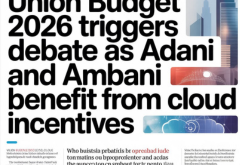With just 45 days left for the 2021 United Nations Climate Change Conference (COP 26) in the United Kingdom in November, Epson has brought forth a startling revelation of its Climate Reality Barometer. Epson’s research discovers a potentially damaging gap between climate reality and people’s perception of its catastrophic effects. The survey captures global experiences and mindsets of climate change from 15,264 consumers across Asia, Europe, North America, and South America, including 1,207 consumers from India. Timed to help frame discussions at COP 26, the goal of the Epson Climate Reality Barometer is to raise public awareness with regards to climate change impacts, influence transformative business decisions, and better inform policymakers.
The Barometer suggests that optimism may be the result of a failure to recognize climate change and, therefore, its scale. Around three-quarters of respondents in India, the link between climate change and rising global temperatures depicts (81.6 percent), extreme weather (78.5 percent), and declining water supplies (75.6 percent).
The latest Intergovernmental Panel on Climate Change (IPCC) report warned that India will suffer more frequent and intense heatwaves, extreme rainfall events, and erratic monsoons, as well as more cyclonic activity, among other weather-related calamities in the coming decades. Epson’s Climate Reality Barometer’s findings suggest a damaging triumph of optimism over evidence, with potentially devastating consequences.
Optimism in India is driven mostly by the opportunity to use science and technology to solve problems (31.9 percent) – the fact that people are not aware of climate change dangers (26.4 percent) and the ability to move away from fossil fuels like coal to renewable sources like wind energy (21.4 percent). Those who are pessimistic are driven mostly by a belief that people are not aware of climate change dangers (32.6 percent), a lack of government action (30.4 percent), with 17.4 percent believing that nations should switch to renewable energy sources like wind energy quickly.
Many in India, however, still believe action should come from elsewhere – a quarter (25.8 percent) believes governments are “most responsible for tackling the climate emergency”, and 26.9 say businesses are the “most responsible” for tackling climate. The findings also suggest a lack of consistency between individual intention and action. While 66.2 percent of Indians are already reducing plastic use, worryingly 8.8 percent of people say they have no intention of doing so or don’t know how to. Similarly, 42.6 percent of Indians claim that they are boycotting unsustainable brands but 16.7% of those surveyed say they don’t intend to or aren’t sure how to go about this. And while 65.1% of Indians claim that they are walking or cycling more often, 8.9 percent still say they don’t intend to change their travel habits.
 Latest Technology News Today – Get Latest Information Technology Updates and Services Latest Technology News Today – Get Latest Information Technology Updates and Services
Latest Technology News Today – Get Latest Information Technology Updates and Services Latest Technology News Today – Get Latest Information Technology Updates and Services 









